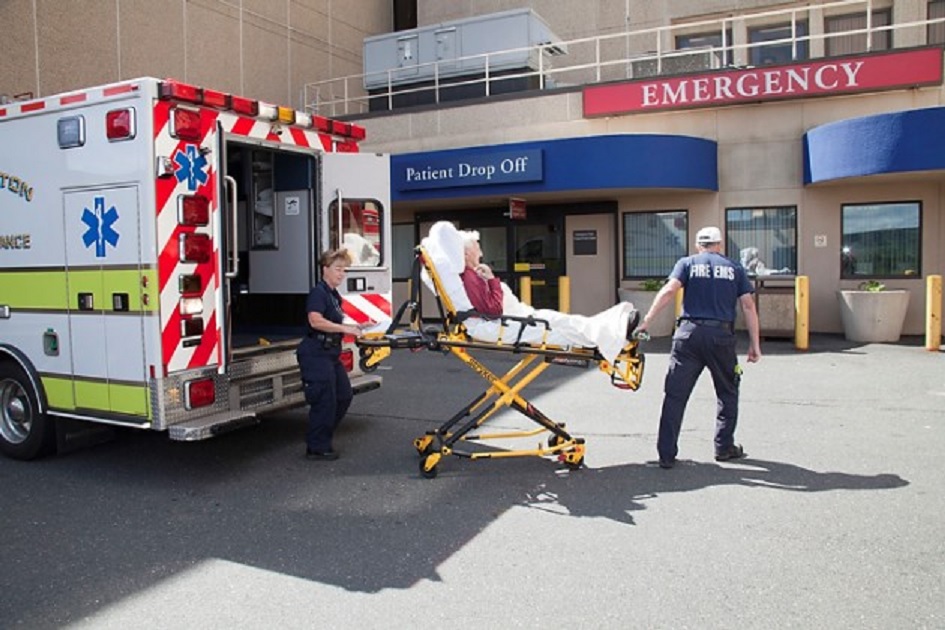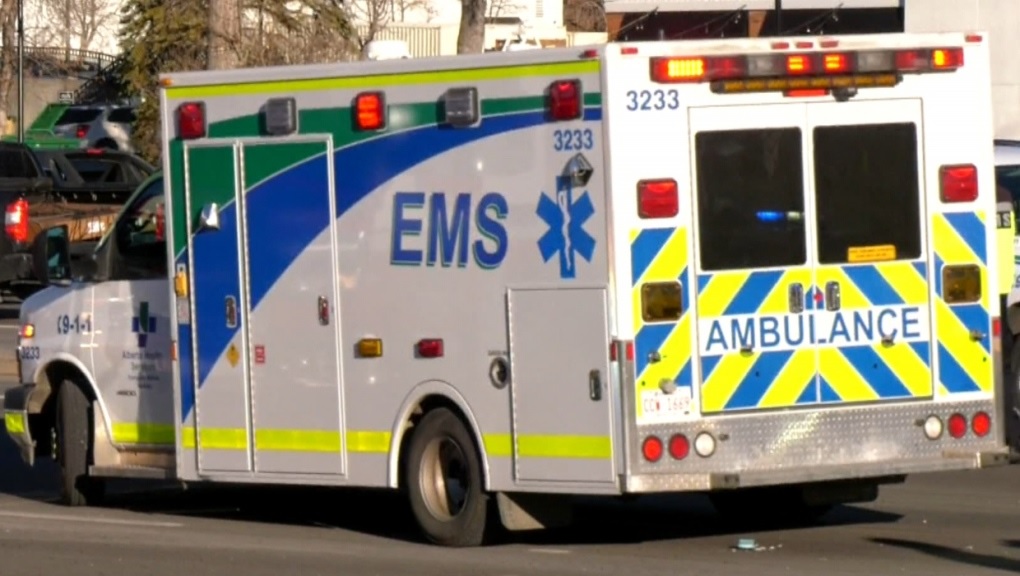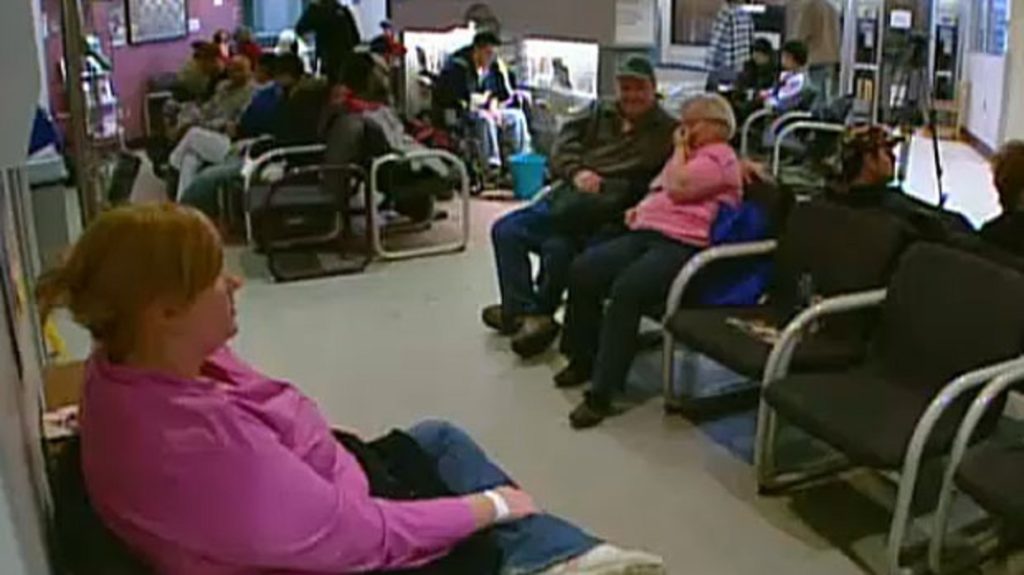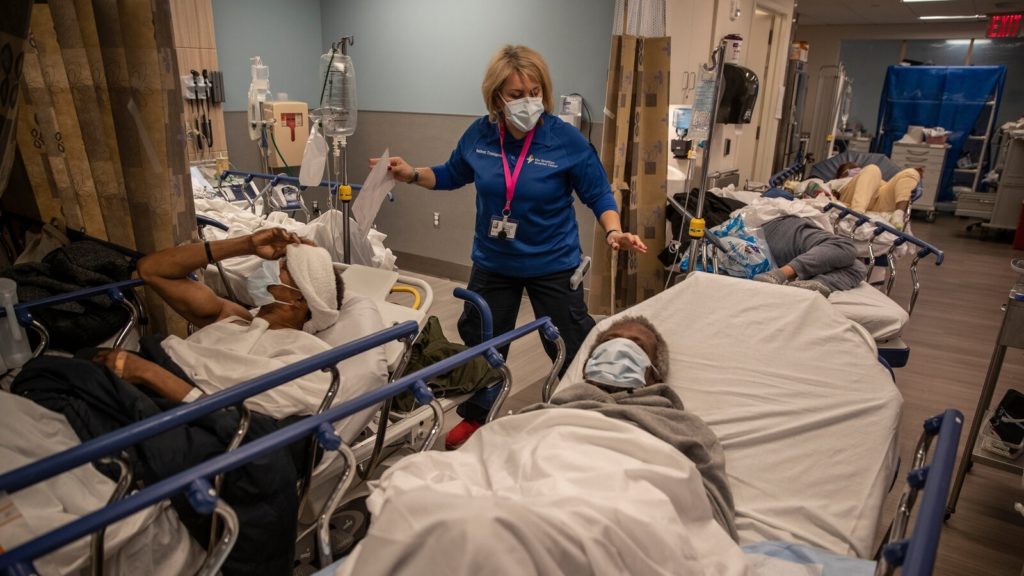TEXT
Paul: Have you ever visited a hospital emergency room?
Rachel: Yes, I work there once a month as a volunteer social worker.
Paul: Is it very stressful to work there?
Rachel: Yes, very much so. The staff has to hit the ground running almost every day.
Paul: What kind off emergencies do you often see?

Rachel: All kinds. Many cases of trauma from car crashes, stabbing, gun shots.
Paul: Also emergencies related to illnesses, I suppose?
Rachel: Absolutely. There are cases of stroke, heart attack, infection, you name it.
Paul: Do you receive patients from other hospitals?
Rachel: Yes. We are a regional hospital; we regularly receive patients from smaller hospitals, after they have been stabilized by them.
Paul: Stabilized as in immobilized, restrained?
Rachel: Yes, but also as in stopping the patient’s conditions from getting worse. For example: giving them medication to lower their blood pressure or heart rate, giving them oxygen, etc.
Paul: What kind of treatments are provided at your hospital?
Rachel: All kinds. From stitches for cuts, to treatment with oral or intravenous antibiotics, to surgery, including plastic surgery.
Paul: What happens when there are two many cases needing surgeries or intensive care?
Rachel: When there are too many patients for the number of doctors, operating rooms, or scanning equipment, patients must be prioritized according to the acuteness of their conditions. Those who are in less severe conditions are put into the holding area while waiting for their turns.
Paul: What is your job as a medical social worker?
Rachel: I help patients or their families deal with their anxieties, stresses or other difficulties. I talk to them, try to calm their worries; I also help them find services that can assist them if they have physical or financial difficulties.
Paul: That must be emotionally very hard.
Rachel: Yes. I try to put other people’s problems behind me after work. But it’s not always easy. I don’t know how doctors and nurses deal with it when they see blood, open wounds, stabbing gashes, protruding bowel, abscesses , people with blocked airway, gasping for air, and the likes, every day.


VIDEO TRANSCRIPT
TRANSCRIPT:
Reporter: It’s a Friday night 11 o’clock when we first arrived at Rhode Island Hospital’s ER, and we hit the ground running.
Manager: Critical Care is busy right now; we just had a couple of level 1A, which is our top trauma type patients that we get and the sickest patients.
Doctor: So this gentleman was in a motorcycle crash earlier this evening.
Reporter: Motorcycle versus automobile. The police report indicates he was trapped under the car tire and that he was wearing a helmet.
Doctor: Thanks to the efforts of the combined EMS an Air transport they actually saved his life.
Reporter: Stabilized at the Fall River Hospital then flown here
Doctor: (audio skipped)
Reporter: He remained in critical condition given the severity of his injuries. His hands are restrained so he doesn’t pull his chest tube out.
Doctor: (audio skipped)
Reporter: Social worker Jessica Hornig is working with his family.
Social worker: They’re anxious, they’re agitated, very nervous.
Doctor: (audio skipped).
Reporter: Each of these rooms in the critical care unit of the ER is full. In some rooms there are two patients. And the holding area is filling up. By this time it’s 12:45 A.M.
They’re accident victims, one of them severe enough to require dozens of stitches by a plastic surgeon at her bedside.
There’s an elderly woman with a suspected stroke.
Doctor: Well, the brain itself looks like there’s nothing acute going on.
Reporter: A man is brought in so short of breath that he’s gasping for air, and his blood pressure through the roof. He’s not being very cooperative.
Doctor: There’s a chance I’m gonna need to put a tube in your throat to breath for you. Is that OK with you?
Reporter: And there are a number of intoxicated patients, a few of them disruptive. One has to be tackled to the ground by at least four security guards; wheeled to a room where he had to be restrained for his safety, and that of other patients and the hospital staff.
Then there is Luis Rosa of Providence.
Doctor: He actually came in here as a transfer from another hospital, complaining of throat pain and unable to open his mouth or swallow.
Patient: We are going to have our honeymoon in a hospital.
Reporter: The scan shows this newlywed has what is known as a retropharyngeal abscess; an infection behind the throat that is spreading.
Doctor: And it looks like it’s filled with gas and some fluid, so be consistent with a gas producing abscess.
Reporter: Luis is in good spirit but all indications are his infection is severe.
Doctor: I’ve never seen an infection in that location to that extent.
Reporter: Meantime a stabbing victim from New Bedford arrives.
Doctor: I know. Well, we’re going to take you to the operating room.
Reporter: A stab wound to the abdomen and despite the fact that he suffers a rather large gash and a foot of his small bowel is protruding.
Doctor: He is stable right now.


Reporter: Their bigger concern is Mr. Rosa; so now there’s a team of doctors in on this case. He’s already on IV antibiotics but should he go into surgery right away, ahead of the stabbing victim?
Reporter: What concerns you most about Luis?
Doctor: Two things: One is always his airway, the second is a life threatening condition and in his case, his infection, if it turns out to be an infection, could have travelled to his heart rather easily.
Reporter: Tonight at 11 find out what happens to Luis, and find out how the medical team prioritizes its emergencies. That’s tonight at 11, as we continue this rare look inside the ER.
With this special Health Check 10 report, I’m Barbara Moore Silva NBC- 10 news.
SPEAKING PRACTICE
Answer the questions, then piece your answers together to make a story. Make up a story, no need to reveal your personal details.
Have you ever been to a hospital emergency room or a medical clinic?
Was it for treatment, for work, to accompany someone, a regular check- up, or just a visit?
What did you (or the person you accompany) suffer?
What treatment, examination, or test did you, or them, receive?
If you did not receive any treatment during that visit, have you ever received medical treatment before? What kind?
Did you see other people with other injuries or illnesses? What kind of injuries or illnesses?
How did you find the atmosphere in an emergency room (or the clinic)?
Were you stressed in the emergency room (or the clinic)?
Would you consider the medical profession or working in a hospital? Why?
